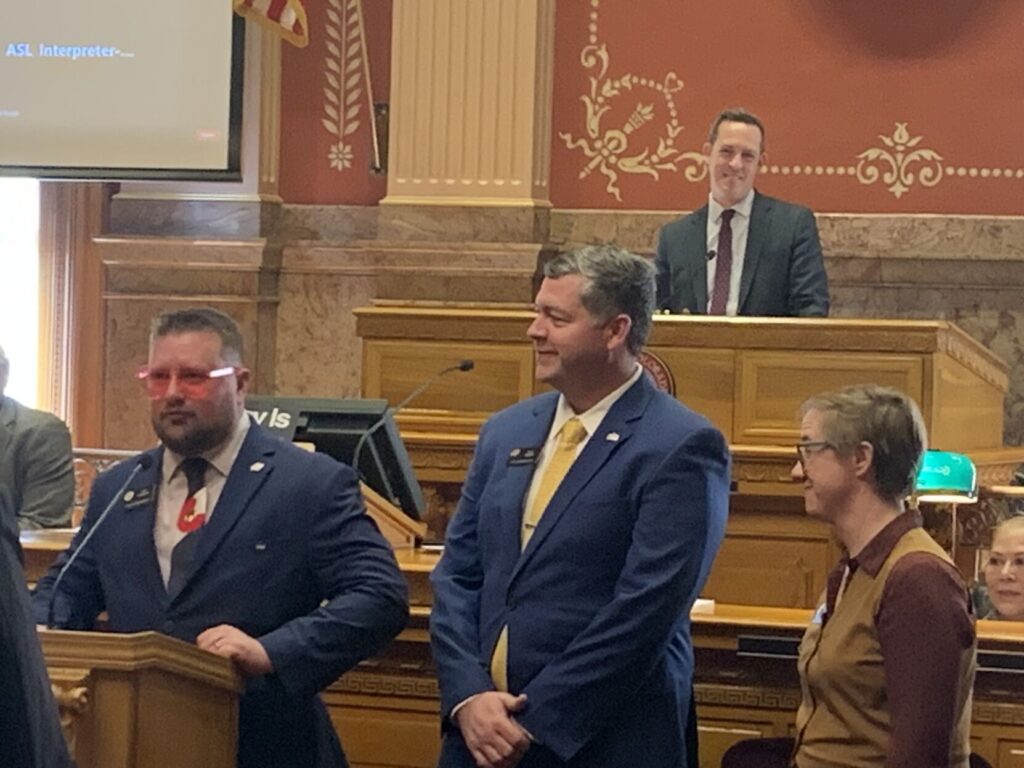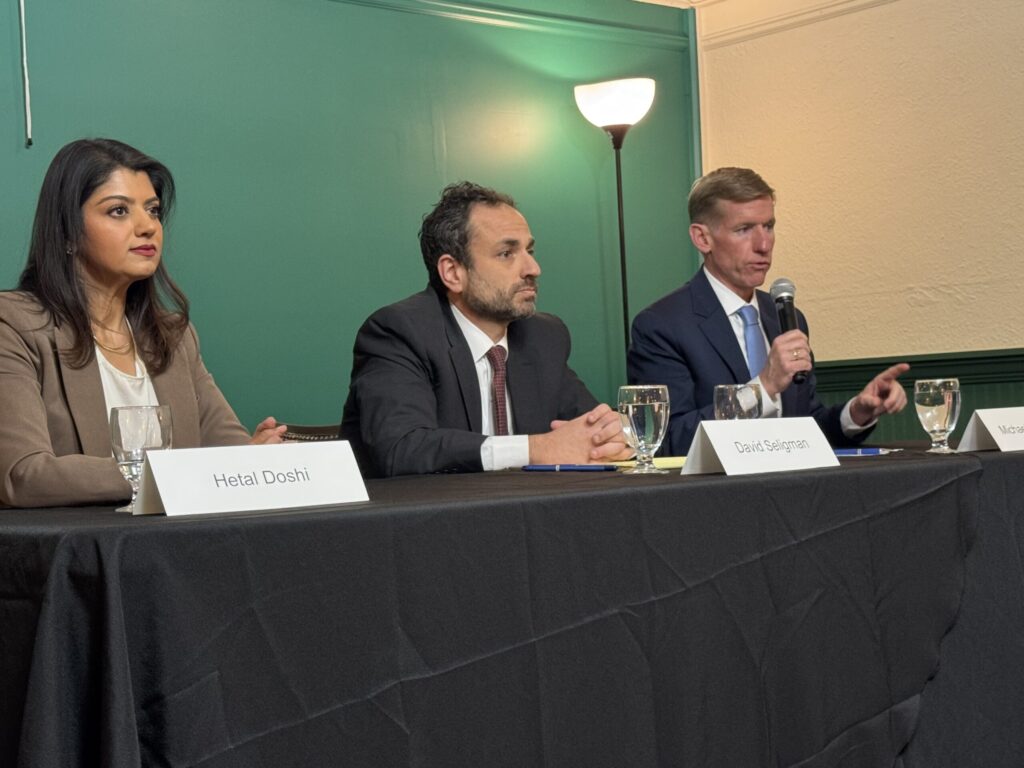Aurora’s request for proposals to determine cost of contracting public defenders comes up empty

A request for proposals sent out by the city of Aurora in January to determine the potential costs of contracting out for indigent defense attorneys came back empty last week after months of tense discussion about the future of the city’s public defender’s office.
The RFP was sent out in January, with proposals due in February, and staff expected to present findings in March. However, no proposals were submitted by the deadline, according to a records obtained by The Denver Gazette.
The City Council originally voted to send out the RFP – which was intended to figure out if court-appointed defense counsel using private attorneys on contract would be more cost effective than maintaining the city’s public defenders office – in October.
Several people, notably the city’s own public defenders, and others opposed the RFP and the potential of privatization, saying it did not fully encompass the public defender’s role or the extra costs that come with privatization of the office.
Proponents said it was necessary so the council could get an analysis of the costs of privatization to decide whether to move forward.
Mayor Pro Tem Dustin Zvonek, a strong proponent of privatization, said he still believes the city could provide indigent defense in a more cost-effective manner. But since the RFP came up empty, he said he will have to “move on.”
“That’s what I said I would do and that’s what we will do,” Zvonek said. “I believe it would have been possible (to lower the cost), but without anybody willing to do it, it’s not going to happen.”
Zvonek was initially surprised the city didn’t get more proposals, but less so later in the process, he said.
While there is no hard-and-fast answer as to why no proposals came through, proponents and opponents offered speculations.
Aurora’s Chief Deputy Public Defender Elizabeth Cadiz said finding out the request came back empty is a “huge relief” but added she’s still nervous about what the future looks like for her office.
Cadiz said the RFP likely deterred applicants because it was “not well written.” The process that the council took to put the RFP out was “problematic” and not well researched, she added.
Indigent defense is also no small task, Cadiz said. Across the country, finding lawyers willing and able to take on public defense is difficult, she said.
Zvonek said there was interest in the request early on in the process, but it tapered off toward the end when “public effort turned the whole process into a circus,” he said.
“Over the last several months, there’s been public effort to try to prevent us from even gathering this information to determine whether or not we could do it in a more cost effective way,” Zvonek said.
The RFP was also surrounded by a lot of disinformation, Zvonek said. While he hopes the disinformation wasn’t intentional “it’s hard to believe that it wasn’t,” he said.
When the council put out the RFP, people seemed to think it was a move to privatize the office when, in reality, it was to gather information about the possible cost savings that could come with that move if the council moved forward with it, Zvonek said.
In regards to the whole process, there was “disinformation” that the proposal to privatize would get rid of peoples’ 6th Amendment rights, which was not true, Zvonek said.
“It’s unfortunate that those types of information were pushed out there,” Zvonek said. “The level of public pushback by, quite frankly, the chief public defender to try to create a situation that made it seem toxic I’m sure had something to do with anybody who might be interested not submitting.”
Cadiz, on the other hand, said she’s “disappointed” that the council is not considering the legitimacy of the issues brought forward with the RFP and instead pinned the blame for the lack of proposals on the public outcry directed at the process.
“Were people discouraged from submitting because of media coverage or opposition? Perhaps,” Cadiz said. “But I think people also could have been discouraged and afraid to involve themselves in a system where the defense function appears to get very little respect. Why would you want to be part of that?”
Throughout the process of the RFP, Cadiz said she and her office have felt disrespected.
“The level of disrespect and backlash that I, even personally, have received from the City Council merely by opposing what has been proven time and time again to result in less effective representation is really concerning,” she said. “I have a duty as a department director to use my voice … to point out where there’s been mistakes and it hurts for it to be suggested that I’m lying.”
During Monday night’s City Council meeting, members finalized two ordinances regarding mandatory minimum sentences for retail theft and “dine and dash” crime convictions.
Opponents of the ordinances have, in prior meetings, pointed to the council’s simultaneously adding harsher penalties to crimes while trying to outsource its public defense office, saying the move to be tough on crime while trying to get cheaper indigent defense is ironic.
The first of the two ordinances finalized Monday lowers the threshold that qualifies someone for the mandatory retail theft conviction sentence from $300 to $100 in stolen goods and adds provisions for increased jail time of 90 days minimum for repeat offenders.
The second of the two ordinances applies mandatory minimum sentences on “dine and dash”-type crimes, imposing the mandatory minimum three-day sentence for “defrauding a public establishment,” or not paying after dining, in the amount of $15 or more.
Zvonek said the city being tougher on crime is exactly why he wanted to look into providing indigent defense in a more cost effective way.
“That is the reason we started this conversation,” Zvonek said. “Knowing we were going to take a tougher posture on crime that would ultimately require more people to need public defense services, the goal was to determine whether or not we could do it in a more cost effective manner, knowing that the cost will go up over time.”
After an initial spike in cost for mandatory sentencing, however, Zvonek said he believes the costs will decrease because the ordinances are meant to act as a deterrent.
Cadiz said she’s been a defense attorney since 2008 and has seen again and again that mandatory minimum sentences do not deter crime and, in fact, increase levels of recidivism, she said.













